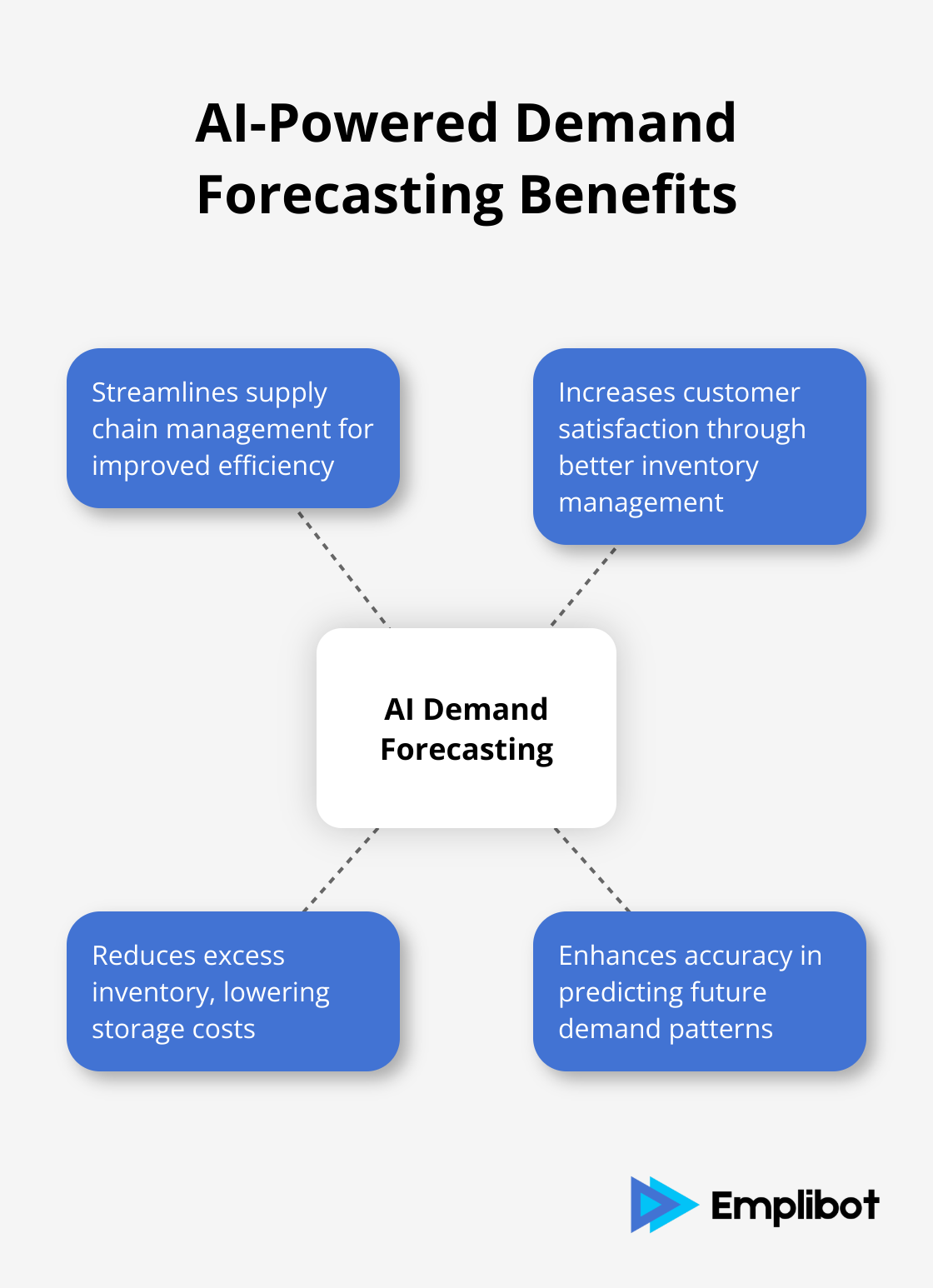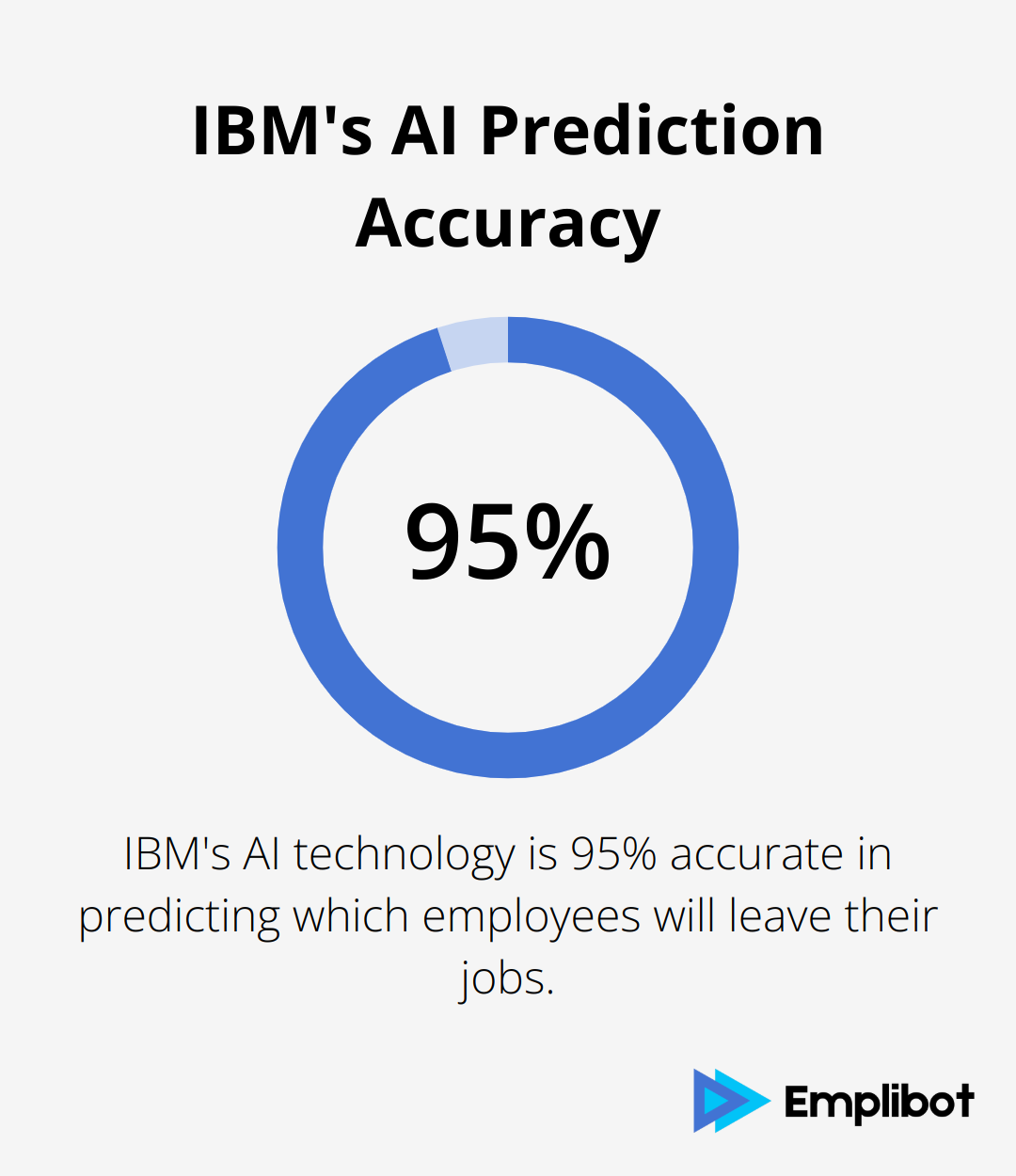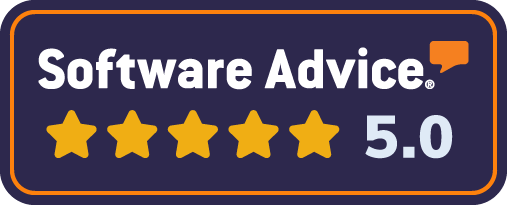At Emplibot, we’ve witnessed firsthand the revolutionary impact of AI on business operations.
Artificial intelligence is reshaping how companies interact with customers, manage supply chains, and handle human resources.
This transformative technology is not just enhancing efficiency; it’s redefining entire business models and creating new competitive advantages.
In this post, we’ll explore how AI is driving these changes and what it means for the future of business.
Contents
ToggleHow AI Enhances Customer Service
AI transforms customer service and support, becoming essential for businesses to maintain competitiveness in today’s fast-paced market.
AI-Powered Customer Interactions
AI-powered chatbots and virtual assistants now handle a significant portion of customer inquiries. They automate routine inquiries, reducing the need for human agents and cutting support costs by up to 30%, as seen in companies like Vodafone. These AI helpers manage multiple conversations simultaneously, providing instant responses 24/7 (a level of availability human agents can’t match).
H&M’s chatbot, for example, helps customers find products, offers styling advice, and processes orders. This improves customer satisfaction and allows human agents to focus on more complex issues.

Personalized Experiences through AI
Personalization has evolved from a luxury to an expectation. AI analyzes vast amounts of customer data to create highly personalized experiences. Netflix uses AI to recommend shows based on viewing history. By providing personalized recommendations, Netflix can keep viewers on the platform longer, reducing exit rates and increasing customer retention.
Businesses can implement AI-driven personalization through:
- Analysis of purchase history for relevant product suggestions
- Customization of website layouts based on browsing behavior
- Tailoring of email content to individual preferences
Predictive Customer Needs
Predictive analytics represents one of the most powerful applications of AI in customer service. Companies can anticipate needs and address issues proactively by analyzing patterns in customer behavior.
Telecom companies use this technology to predict potential service issues, allowing them to fix problems before customers notice. This proactive approach improves customer satisfaction and reduces support costs.
To implement predictive analytics, businesses should:
- Collect and centralize customer data from all touchpoints
- Invest in AI tools for effective data analysis
- Train staff to act on the insights generated by these tools
While AI transforms customer service, the human touch remains crucial. The most effective customer service strategies combine AI efficiency with human empathy and problem-solving skills.
As we move forward, it’s clear that AI’s impact extends beyond customer service. The next frontier for AI in business operations lies in supply chain management, where it promises to revolutionize how companies forecast demand, optimize inventory, and manage logistics.
How AI Revolutionizes Supply Chain Management
AI transforms supply chains from reactive to proactive systems. This technology redefines inventory management, warehouse operations, and supply chain visibility. Let’s explore the game-changing impacts of AI on supply chain operations.
Smarter Demand Forecasting
AI-powered demand forecasting redefines inventory management. Traditional methods often lead to overstocking or stockouts, but AI analyzes vast datasets to predict demand with unprecedented accuracy. This technology helps businesses streamline supply chain management, increase customer satisfaction, and say goodbye to excess inventory.

To implement AI-driven demand forecasting:
- Integrate data from multiple sources (sales, weather, social media trends)
- Use machine learning algorithms to identify patterns
- Continuously refine models with new data
Autonomous Warehouses
AI turns warehouses into high-tech hubs of efficiency. Autonomous warehouses powered by end-to-end AI robotic systems increase efficiency, speed, and flexibility while reducing labor needs and operating costs.
For businesses looking to automate their warehouses:
- Start with pilot projects in specific areas
- Invest in AI-powered inventory management systems
- Train staff to work alongside AI systems
Real-time Supply Chain Visibility
AI provides unprecedented visibility into supply chains. This level of insight allows companies to respond to disruptions proactively, reducing costly downtime.
To enhance supply chain visibility:
- Implement IoT sensors for real-time data collection
- Use AI analytics to process and interpret data streams
- Develop contingency plans based on AI-generated insights
Optimized Logistics and Transportation
AI optimizes logistics and transportation routes, reducing fuel consumption and delivery times.
To optimize logistics with AI:
- Implement AI-powered route planning software
- Use real-time traffic and weather data for dynamic route adjustments
- Analyze historical data to identify patterns and improve future planning
The impact of AI on supply chains extends beyond optimization-it opens up new possibilities for efficiency and growth. As supply chain management evolves, so does another critical area of business operations: human resources. AI is now reshaping how companies recruit, manage, and develop their workforce.
How AI Transforms HR Practices
AI revolutionizes human resources, streamlines processes, and enhances decision-making. From recruitment to employee development, AI tools reshape how companies manage their workforce.
Smarter Recruitment with AI
AI-powered recruitment tools transform how companies find and hire talent. These systems scan thousands of resumes in seconds, identifying top candidates based on predefined criteria. A study offers valuable insights into the dual potential of AI in recruitment, highlighting benefits such as increased efficiency and cost reduction.
To implement AI in recruitment:
- Define clear job requirements and success metrics
- Train AI systems on your company’s successful hires
- Use AI to screen candidates, but have humans make final decisions
Unilever has seen significant improvements in their hiring process. They reduced time-to-hire from four months to four weeks and saved 100,000 hours of recruiter time annually.
Data-Driven Performance Analysis
AI analyzes employee performance data to provide insights that were previously impossible to obtain. These systems identify patterns in productivity, engagement, and even predict which employees are likely to leave.
IBM’s AI technology is now 95 percent accurate in predicting workers who are planning to leave their jobs. This allows HR teams to intervene before valuable employees leave.

To leverage AI for performance analysis:
- Collect comprehensive employee data
- Use AI tools to analyze performance metrics
- Act on insights to improve employee satisfaction and retention
Personalized Learning and Development
AI transforms corporate training by creating personalized learning experiences. These systems adapt to each employee’s learning style, pace, and career goals.
AI-powered learning platforms analyze an employee’s skills, job role, and career aspirations to create tailored learning paths. This approach has shown to increase course completion rates by 32% and improve knowledge retention by 43%.
To implement AI in learning and development:
- Assess current skill gaps in your organization
- Choose AI-powered learning platforms that offer personalized content
- Continuously update learning materials based on AI insights
Ethical Considerations in AI-Driven HR
While AI brings numerous benefits to HR, it’s important to maintain a balance between technology and human touch. AI should augment human decision-making, not replace it entirely. Companies must address potential biases in AI algorithms and ensure transparency in their use of AI in HR processes.
To ensure ethical use of AI in HR:
- Regularly audit AI systems for bias
- Provide clear explanations of how AI is used in HR decisions
- Maintain human oversight in critical decisions (such as hiring and firing)
Future Trends in AI for HR
The future of AI in HR looks promising. We expect to see more advanced applications, such as:
- Predictive analytics for workforce planning
- AI-powered virtual reality for immersive training experiences
- Emotion recognition technology for improved employee well-being
Companies that embrace these technologies now will be better positioned to attract, retain, and develop top talent in the future. However, it’s crucial to approach AI adoption in HR with a clear strategy and a focus on ethical implementation.
Final Thoughts
The impact of AI on business operations transforms how companies function across multiple domains. AI revolutionizes customer service, supply chain management, and human resources, reshaping traditional business models. Companies that adopt AI technologies gain a competitive edge through enhanced efficiency and innovation.
AI will become more integrated into business processes, advancing natural language processing and creating resilient supply chains. Emplibot helps businesses leverage AI for content marketing, automating blog and social media content creation. This allows companies to focus on strategy while AI handles execution, exemplifying how businesses can use AI to streamline operations and drive growth.
The AI revolution in business operations reimagines how we work, serve customers, and create value. As AI evolves, it will open new possibilities for innovation and efficiency across all sectors. Businesses that embrace these changes and adapt quickly will thrive in this AI-driven future.


![AI Marketing: Lead Generation [Guide]](https://wp.emplibot.com/wp-content/uploads/emplibot/ai-marketing-lead-generation-1753859292-768x456.jpeg)
![AI Marketing: Predictive Lead Scoring [Guide]](https://wp.emplibot.com/wp-content/uploads/emplibot/predictive-lead-scoring-1753772819-768x456.jpeg)

![Google Autocomplete for Keyword Research [Guide]](https://wp.emplibot.com/wp-content/uploads/emplibot/google-autocomplete-for-keyword-research-1753600089-768x456.jpeg)




